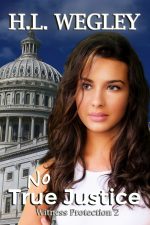By H.L. Wegley
A few months ago I was asked what I would do differently, as a novelist, if I could start again—a complete do-over. In answering this question, most of us would include starting to learn the craft at an earlier age. Now that I am beyond my three-score and ten and into those years Moses called “labor and sorrow” and Solomon named “days of trouble,” something else is a bigger concern.
As communicators of our loving God’s nature and His words, the stakes for us are high. I would place firming up the foundation of my biblical worldview at the top of my do-over list.
In Scripture, God speaks to every area of human life and endeavor. And, when we write about life, we must know what He says if our writing is to honor Him and bless our readers. We need to be able to rightly handle all areas of life that come up in stories, including the darker areas. To accomplish this, certainly a lot of Bible study is required. But there are some great helps. Over the past twenty years many excellent books on Christian worldview have been published and there are video courses like Focus on the Family’s Truth Project.
James warned us about the tongue, that small part of our body that can start a raging forest fire. By logical extension, our pen falls into the same category, because the pen also communicates words that can bless or curse, lead astray or align to truth, confuse or clarify. If we have a solid biblical worldview, that worldview will prevent a lot of forest fires, and it will guide our writing as well as our lives.
After establishing our worldview, we should define our philosophy for writing fiction, i.e. we must decide how we will put the truths contained in our worldview into our writing. This includes how we will handle the dark subjects and sensitive issues. It includes both what we will leave in and what we will keep out—e.g. how we will treat profanity, sexuality, marriage, salvation, condemnation, violence, crime, punishment, weapons and self-defense, to name a few.
Defining our philosophy based on a biblical worldview will uncomplicate the stickiest issues by clarifying what God thinks on the matter. It doesn’t always make the issues easy, just less complicated.
In formulating our philosophy for writing, we should remember that we novelists have great freedom in determining our characters, plots, and in how we tell our stories. The artifice of fiction protects us from realism which often includes objectionable content such as profanity or graphic violence. If we remember that fiction is an artifice, we can write realistic stories that do not violate our philosophy of writing. We simply have to make the choice not to violate it and then never let anyone coerce us into doing so.
The words we write, the words we choose not to write, and the words we read, contribute to spiritual wealth or spiritual impoverishment in us and our readers. They have eternal consequences. As you write, remember the stakes. Have a well thought out and prayed over plan, a philosophy that is based on principles from God’s word.
If I could start again as a Christian novelist—establishing a philosophy for writing Christian fiction. @hlwegley #ACFWBlogs #amwriting #ChristianFiction #writinglife http://www.acfw.com/blog Click To Tweet H.L. Wegley served as an Air Force Intelligence Analyst and a Weather Officer. In civilian life, he worked as a research scientist, publishing in the scientific literature, then developed Boeing computing systems before he and his wife retired near Seattle. He’s an award-winning author of inspirational thrillers and high-action romantic-suspense novels such as No True Justice. Visit his website at http://www.hlwegley.com.
H.L. Wegley served as an Air Force Intelligence Analyst and a Weather Officer. In civilian life, he worked as a research scientist, publishing in the scientific literature, then developed Boeing computing systems before he and his wife retired near Seattle. He’s an award-winning author of inspirational thrillers and high-action romantic-suspense novels such as No True Justice. Visit his website at http://www.hlwegley.com.
